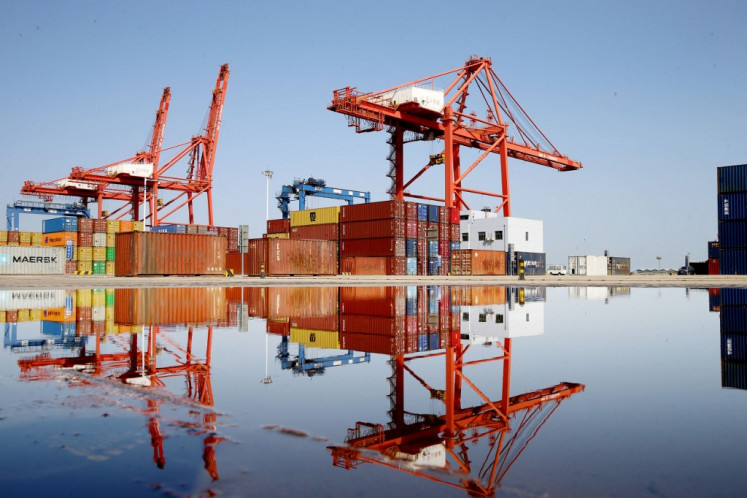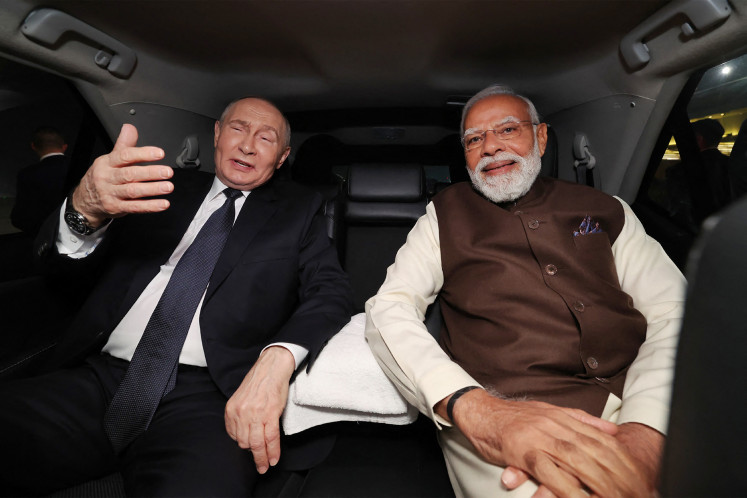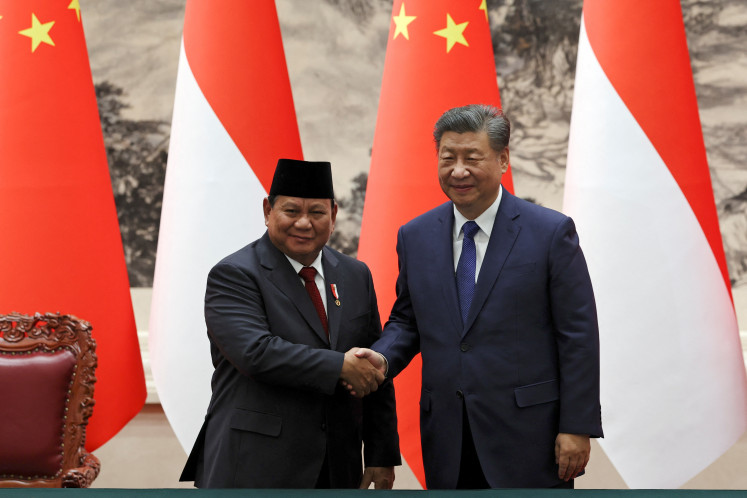Popular Reads
Top Results
Can't find what you're looking for?
View all search resultsPopular Reads
Top Results
Can't find what you're looking for?
View all search resultsPlastic: Friend, foe or frenemy?
Single-use plastic is the problem that we need to solve. A number of well-meaning people say single-use plastic should be banned. However, they miss the point that even single-use plastics play an important role in our lives especially those of the under-privileged segments of the society
Change text size
Gift Premium Articles
to Anyone
W
e are all horrified seeing videos of dolphins dying because of plastic. Bottles on the pristine beaches of Bali. Plastic waste littering the playgrounds of our children. For many of us, plastic has become the enemy that is slowly strangling our environment and needs to be eliminated from our lives. But the reality might be a little more complex than we think.
Actually, plastic is a wonderful material that has made our lives better in so many different ways. It is cheap, flexible, durable and inert. It is important that we understand that everything we consume has at some stage come from nature, whether it is a plastic bottle or a bamboo basket. A full life-cycle analysis shows very different results from what is our common perception. Plastic as a material is more sustainable than many other materials that we use. No wonder, the most modern environmentally friendly cars are 60 percent plastic.
But there is an undeniable problem that we encounter everyday of waste and littering. In countries like Indonesia where people for long have believed in reuse and rarely throw away anything of value, a large proportion of plastic products are actually reusable and reused.
We must not vilify all kinds of plastic but encourage the plastic industry so that it flourishes and brings even more innovations of reusable plastics to the market.
Single-use plastic is the problem that we need to solve. A number of well-meaning people say single-use plastic should be banned.
However, they miss the point that even single-use plastics play an important role in our lives especially those of the under-privileged segments of the society. Sachets, pouches make products accessible to consumers at very reasonable prices.
I remember a time when sachets didn’t exist. At that time many wonderful products like shampoos, noodles, biscuits, snacks, etc were available only to rich people. Penetration of these products was less than 10 percent. Single-use plastics democratized these wonderful categories and provided access to less privileged parts of the society. We can remove them from our world but the people who will pay the price will not be the rich, elite but the vast majority who today don’t have a voice.
Yet there is a problem. How do we then solve it? Reduce. Reuse. Recycle.
Reduce plastic used in packaging, stop using more plastic is absolutely necessary.
Undoubtedly we must reduce the usage of single-use plastics. Remember plastics emerged in our daily life only 30 odd years back. I remember my mother always carried a cloth bag to the market and brought back provisions in her bag. We had a milk man who came home and delivered milk that we stored in our own containers.
There were no plastic milk pouches or plastic shopping bags. Is it very tough to go back to some of those habits? I think not. Six months back, at the instance of a very passionate young girl in our office, we removed all single-use plastics.
Initially there were some concerns but today I see people bringing their own tumblers to fill water, drink coffee with bamboo straws and they take Food back to their workstations in lovely looking containers.
The change hasn’t been difficult and the waste has reduced by 15 percent. With some motivation, discipline and determination this can be done. So let’s first reduce the amount of single-use plastic we consume.
We are a thrifty society, we don’t throw away things of value. There are so many ways in which we can reuse products and stop them going to waste. Plastic bottles and containers can be reused, over and over again. Throw away only on rare occasions when you have no choice.
Recycle is the toughest part of the solution and therefore also the one that will create maximum value. Because if it wasn’t difficult someone would have already done it. Single-use especially multilayer plastics are most difficult to recycle but the good news is that there are now many technologies emerging that can recycle these into valuable materials like energy or back to plastic packaging itself.
However there are two problems that still need to be solved: waste collection and viability of the recycling systems.
Collection is tough especially when we think in terms of units. Rough estimates suggest that the total weight of single-use plastic packaging produced in a year is almost 3 million tons but it is in the form of almost a trillion pieces of packaging every year.
That is the mind boggling number of pieces that are littered all over, on the streets, in the playgrounds, on the lovely beaches in our country. Who will collect them and bring them into the recycling units, is this even possible?
The solution to this problem may just be hiding in plain sight. There are five million ‘pemulung’ (waste scavengers) in Indonesia, truly the most under-privileged parts of our society.
They work tirelessly, doing the most back-breaking jobs and earning a pittance. Always at the mercy of the ruthless, corrupt brokers and mafia. Earning less than US$2 per day and living in desperate conditions.
Organizing them, eliminating the middle-men and ensuring they earn a decent living while they collect plastic could solve a real problem.
A trillion pieces of plastic packs are scattered every year, but if this large, hard-working force was focused on collecting this waste, it would be just over 500 pieces per scavenger, every day. Not impossible! Some years back a group of bright young men in Indonesia used technology to organize many thousands of ojek (motorcycle taxi drivers) and created the most valuable start-up in Southeast Asia — GoJek. This problem is calling out to another group of entrepreneurs who could organize the scavengers and discover a fortune at the bottom of pyramid.
But there is another piece of the puzzle that needs to be solved: viability of the recycling industry. Someone has to pay for it and this calls for a unique partnership between citizens, manufacturers and the government.
Citizens are the pivotal part of this coalition. Show active preference for brands that become “plastic responsible”. Don’t pay more, just choose brands that participate in the collection and recycling effort and the rest will follow.
So plastic is not the problem but plastic pollution is. There is a role that citizens have to play — reduce, reuse and choose brands that are plastic responsible. The industry has to play its part. Reduce plastic used in packaging, stop using more plastic than is absolutely necessary. Create new business models that encourage reuse.
But in all this we must not forget the millions of pemulung, bringing them into the formal economy and helping them earn a decent, living wage will be as valuable an outcome as solving the plastic litter and waste problem.
***
The writer is president director of PT Unilever Indonesia Tbk. The views expressed are his own.











